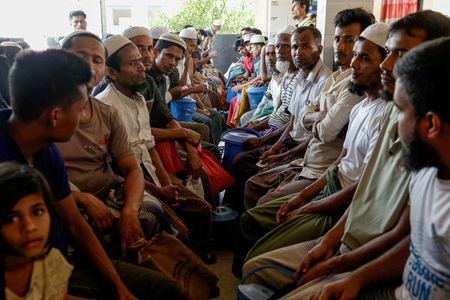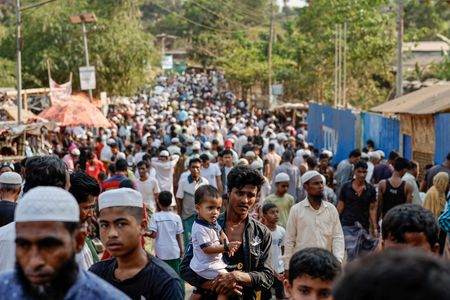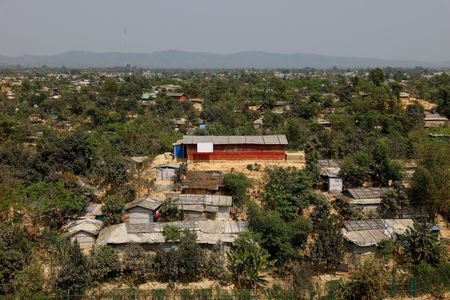By Olivia Le Poidevin
GENEVA (Reuters) -Essential services for the Rohingya refugee population in Bangladesh are at risk of collapsing unless more money is found, the United Nations refugee agency said on Friday, with its appeal for $255 million to support them just 35% funded.
More than 1 million Rohingya have been crammed into the camps in southeastern Bangladesh, the world’s largest refugee settlement. Most fled a brutal crackdown by Myanmar’s military in 2017, although some have been there for longer.
“There is a huge gap in terms of what we need and what resources are available. These funding gaps will affect the daily living of Rohingya refugees as they depend on humanitarian support on a daily basis for food, health and education,” United Nations High Commissioner for Refugees spokesperson Babar Baloch told reporters in Geneva.
The humanitarian sector has been roiled by funding reductions from major donors, led by the U.S. under President Donald Trump and other Western countries, as they prioritise defence spending prompted by growing fears of Russia and China.
“With the acute global funding crisis, the critical needs of both newly arrived refugees and those already present will be unmet, and essential services for the whole Rohingya refugee population are at risk of collapsing unless additional funds are secured,” Baloch said.
Health services would be severely disrupted by September, and by December essential food assistance would stop, UNHCR said.
At least 150,000 Rohingya refugees have arrived in Cox’s Bazar in Bangladesh in the last 18 months, according to UNHCR.
Violence and persecution against the Rohingya, a mostly Muslim minority in mainly Buddhist Myanmar’s western Rakhine state, have continued to force thousands to seek protection across the border in Bangladesh, it added.
“This movement of Rohingya refugees into Bangladesh… is the largest from Myanmar into Bangladesh since 2017 when some 750,000 Rohingya fled the deadly violence in their native Rakhine state in Myanmar,” Baloch stated.
(Reporting by Olivia Le Poidevin, Editing by Miranda Murray)










